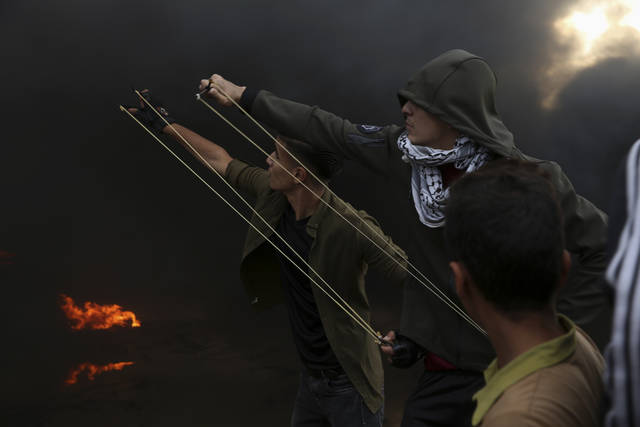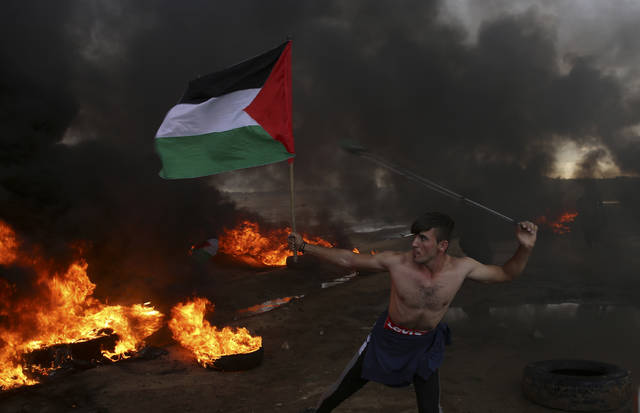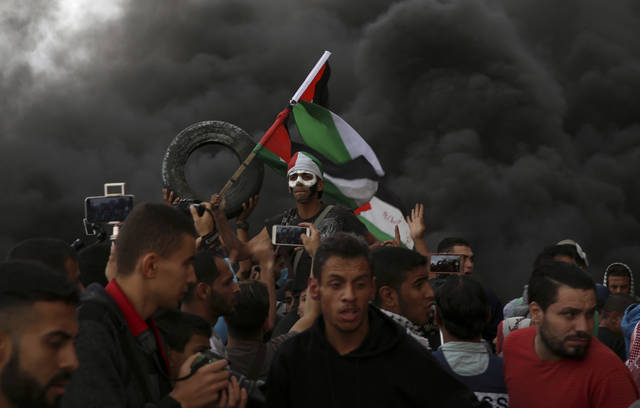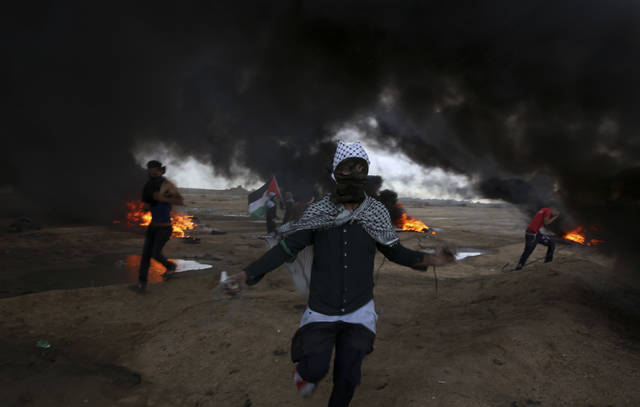GAZA CITY, Gaza Strip — Israeli aircraft struck several militant sites across the Gaza Strip early Saturday shortly after militants fired rockets into southern Israel, the Israeli military said.
Israel’s chief of staff Lt. Gen. Gadi Eisenkot conducted situational assessment while the airstrikes and barrages of rockets continued, the army added without elaborating.
The cross-border violence came hours after Israeli forces shot and killed four Palestinians protesting along the perimeter fence dividing the Hamas-ruled Gaza and Israel.
In a rare statement implicitly claiming responsibility for the rocket fire, the smaller Islamic Jihad group said it has always exercised restraint, but it “can no longer stand idle before the continued killing of innocents and bloodshed by the Israeli occupation.”
There was no word on injuries as a result of the rockets and airstrikes.
The bloodshed and exchange of missiles complicated the mission of Egyptian mediators, who intensified their shuttle diplomacy to achieve calm and prevent a full-blown conflict between the militant Hamas group and Israel.
The Israeli army has confirmed at least 12 launchings, adding its Iron Dome defense system intercepted several missiles.
On Friday, thousands of Palestinians gathered at five locations along the boundary, burning tires and throwing rocks, grenades and firebombs at Israeli troops who responded with tear gas and occasional live fire.
The Israeli army said some suspects briefly crossed the fence. In a separate incident, the military said its aircrafts struck three Hamas military posts in northern Gaza Strip.
Three of the dead were reported in Khan Younis, in southern Gaza, according to the ministry. Witnesses said that dozens of protesters approached the fence there.
In northern Gaza, a 27-year-old man died after being shot in the head, the ministry said. It added that 170 other protesters sustained various injuries.
Hamas has scaled down the protests over the past two weeks as Egypt stepped up its efforts to secure calm.
On Wednesday, Egyptian intelligence officials met representatives of Palestinian factions in Gaza. Loay Qarouti of the Popular Front for the Liberation of Palestine General Command said the mediators asked them “to protect the lives of protesters and minimize losses among them.”
Egypt wants calm restored to achieve national Palestinian reconciliation between Hamas, which seized Gaza in 2007, and the West Bank-based administration of President Mahmoud Abbas.
But Hamas maintains it wants a full lifting of a crippling blockade Israel and Egypt imposed on Gaza to isolate the Islamic movement.
The blockade has made it increasingly difficult for Hamas to govern. Widespread desperation among Gaza’s 2 million residents — who get only a few hours of electricity a day and undrinkable tap water, in addition to suffering from soaring joblessness and limited freedom of travel — fuels their participation in the Hamas-orchestrated protests.
Since the marches began six months ago, at least 160 Palestinians present or taking part in the protests have been killed. A Gaza militant fatally shot an Israeli soldier in July.
Israel accuses Hamas of using the large protests as cover to stage border infiltrations and attacks. It says it is defending its border and accuses Hamas of exploiting young protesters and encouraging them to risk their lives in order to increase pressure to ease the blockade.
Israel has come under heavy international criticism for what many see as excessive use of force and the large number of unarmed people who have been shot.
In the West Bank, a 33-year-old Palestinian man was killed and nine others wounded by live rounds, one in critical conditions, as the Israeli forces confronted stone throwers in a village near Ramallah city, doctors said.





